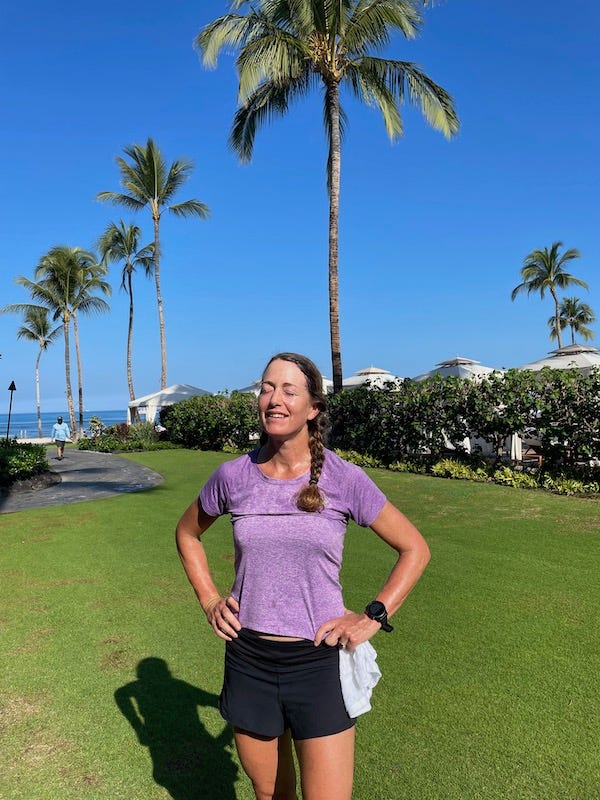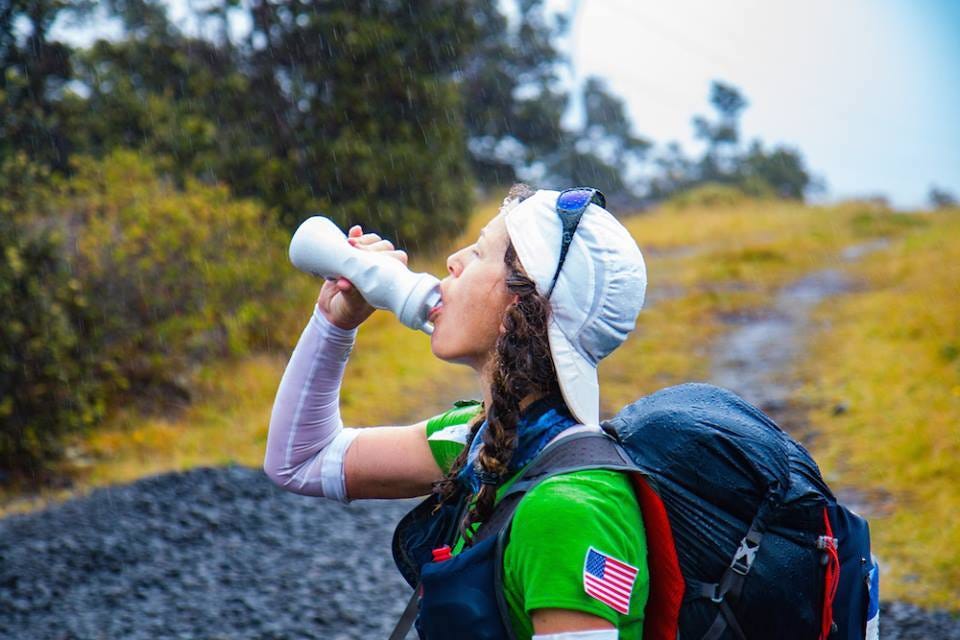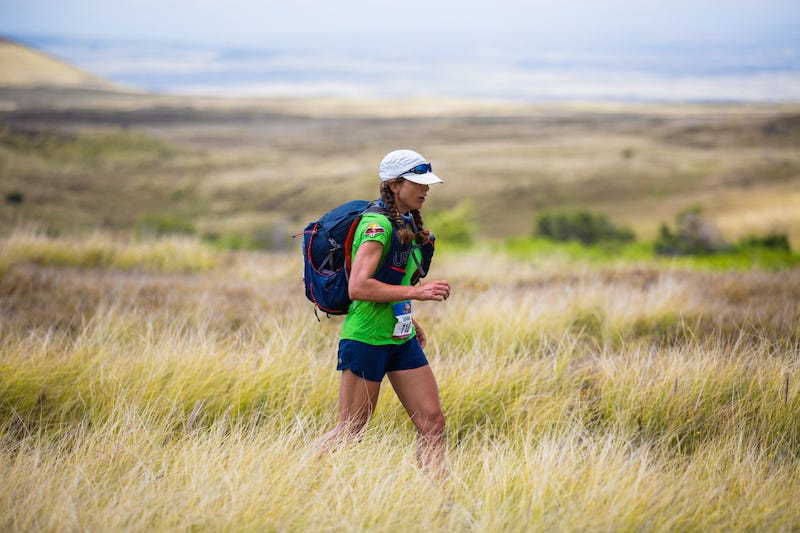Last Friday, I flew home from vacation after five days of relaxing and playing with my family on the island of Hawaii.
As we drove home from the Montrose airport, I pondered the contrast between the dry brown landscape here, and the lush oceanside resort resplendent with fragrant flowers like plumeria and the ambient noise of birdsong and crashing waves. I also contemplated the contrast between my training here and playing on vacation.
I did so many activities last week for the fun of it. With my husband and two adult-age kids, we rented racquets and played tennis (we’re all terrible, so it was hilarious), we hit golf balls at a driving range, took a surfing lesson, snorkeled, and I played multiple ping-pong matches with my son. I swam and swam in the ocean and pool. I had forgotten how much I love being in water.
During those activities, I lost myself in play—meaning, I became totally immersed in the experience and took pleasure in the way it felt. I rediscovered a backhand swing; I remembered how to do handstands in the pool and how to go with the flow when tumbled by a wave.
Only my runs and a workout at the hotel gym felt productive and fatiguing, more like work than play. I completed a punishing speed session with half-mile repeats to see how fast I can run without the handicap of high altitude. (Not very, it turns out, but heat and humidity provided a different kind of handicap.) I ran loops around the resort and lifted weights.
I didn’t take a vacation from running because it’s such a part of my routine, and ironically, the depleted, sweaty feeling post-run refreshes and satisfies me. But I wouldn’t call it “fun” the way the other activities felt. What I do as an athlete is oriented toward endurance, a word related to stamina and even suffering, not play. It’s no mere leisure activity.
In light of our vacation, and as I embark on a new training block to get in faster road-racing shape for a marathon in February, I’m contemplating how to make running feel more like play and less like work.
Many psychologists and work-life experts extoll the virtues of incorporating play into work for one’s work to feel satisfying and engaging. Work without play becomes tedious and feels like drudgery. Play, by contrast, engages the imagination, sparks creativity, nurtures passion and brings joy. Play also relates to games and sport. When you watch little kids play dress-up or run around playing tag, or when you see teenagers immersed in a sport that genuinely excites them, they do it fully engrossed and with abandon. I’d like to be able to run and train more like that—fully engrossed, all-in, passionate, and ultimately having fun.
Recently I listened to a podcast interview with my favorite female ultrarunner, Courtney Dauwalter, who’s known for cracking jokes, training more by feel than by schedule, and always has a smile on her face. She is at the top of the sport, having won UTMB last August and the Ultra Trail Cape Town 100K last weekend. Notably, on her social media posts, she never showboats or talks tough; rather, she writes things like, “Time to play in the mountains!” and uses the hashtag #timetoplay. She exemplifies a playful approach to the sport and uplifts everyone around her.
(Side note: one of the highlights of my summer happened when I started the High Lonesome 100. I spotted Courtney on the sidelines—she was there to support her husband Kevin, who was running—and when I approached her, she threw her arms open and gave me a big hug. “Run like Courtney” became a mantra in my head.)
And yet, Courtney wins by entering the metaphorical pain cave and being comfortable with getting very uncomfortable. How can she or any of us reconcile pain with play?
To answer that question, I thought back to the last time I was on the Big Island, 2017, for the inaugural 155-mile Mauna to Mauna self-supported stage race. Competitors carried all their calories and gear for the week and camped in communal tents at night. We crossed the whole island, starting on the wet Hilo side, skirting Mauna Loa and Mauna Kea, and ended by racing down the coast on the hot Kona side.
It was one of the most challenging races I’ve faced, due to the extreme weather and terrain and the self-supported aspect. We ran and camped through torrential downpours and mud. We flirted with heat exhaustion and dehydration in heat and humidity.
And yet, it was so bad, it was good. It was so ridiculous, it was funny. As much as I suffered from fatigue and calorie depravation (having packed the bare minimum of food to have less weight to carry), I felt totally alive. And I experienced the thrill of competition, racing with another woman for third place so that we brought out the best in each other. At the end of the grueling week, I earned the podium spot by only two minutes. (See full report here.)
When I recall that event, I think both, “that sucked” and, “that was fun!” Those two sentiments can co-exist when the elements of play are present: passion, focus, competition, humor, adventure (anything can happen!), camaraderie, all-in immersion.
As I go forward with training in the new year, I’ll try to approach it less like work. How? These are some things I’ll do:
Add friends or music to make it more entertaining. (Spotify has playlists at 170 - 180 beats per minute, like this, and it’s a fun challenge to try to run in step with the music.)
Lacking those, talk to an imaginary friend or sing songs in my head. (I really do this.)
Be more spontaneous and deviate from the planned workout or route, if I feel like it. Explore every side street or every spur on a trail.
Be imaginative. On my speed workout yesterday, for example, I told myself, “Be a racehorse” or, “Let’s do zoomies” (like our energetic puppy).
Make up games, such as, how many heart-shaped rocks can I spot? Or, can I cover up my watch and accurately guess my time or pace?
Remind myself, “I get to do this!” It’s not mandatory. It’s a privilege and a choice. It’s a play date!
Don’t fear the pain cave. Enter it in my mind and explore the feelings. How deep and dark can I get? Will I find a way out through transcendence?
What ideas do you have to make your work, and training, more like play? Share in the comments below!
Related post: A Day Well Spent







Love this approach altho you are reminding me to stay creative (and maybe silly!) about it keeps everything fresh! I like David and Megan Roche’s podcasts, Some Work, All Play. Thanks Sarah! 🤗
Ha! Now I don’t feel so silly when Colette and I were growling like mountain lions to get over rolling hills!!